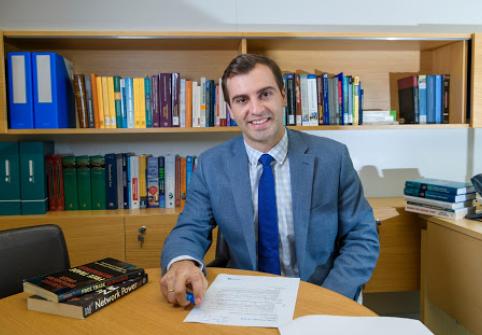News
The Promise of Hybrid Dispute Resolution Fora Conference to be Held at HBKU’s College of Law and Public Policy
12 Nov 2018
Building on its mission to address legal issues of importance for the country from a comparative and transnational perspective, Hamad Bin Khalifa University’s (HBKU) College of Law and Public Policy (CLPP) is set to host a conference on The Promise of Hybrid Dispute Resolution Fora on November 18 - 19.
Qatar is one of the countries in the world that has established an international court, the Qatar International Court and Dispute Resolution Centre (QICDRC), to address private and commercial law matters, mostly coming out of the Qatar Financial Centre (QFC). The QICDRC is unique in that it brings together renowned world jurists to adjudicate the cases before the court.
QICDRC is part of a larger trend that started a couple of years ago to create international courts that are domestic, on the one side, but whose judges also come from other countries. The default language of proceedings is English. These courts usually also apply some version of the English common law. Dubai and Abu Dhabi have similar courts, while the Government of Kazakhstan established the Astana International Financial Centre (AIFC) Court within the AIFC. Singapore created the Singapore International Commercial Court to decide international commercial cases. China also established its own version of a domestic international court, the China International Commercial Court (CICC) with seats in Shenzhen and Xi’an. The goal of the Chinese government with the establishment of the CICC is to facilitate dispute resolution of disputes emerging from the One Belt One Road Initiative, China’s massive infrastructure investment plan that stretches from Beijing to Europe.
More recently, countries in Europe started establishing similar courts, mostly to profit from business arising out of Brexit -- the UK’s process of leaving the European Union. France, Belgium, the Netherlands and Germany have established or are in the process of establishing similar courts, or chambers within existing court structures.
CLPP, in collaboration with the Qatar International Court and Dispute Resolution Centre and Queen Mary University London School of Law, is set to host the world’s first major conference to discuss domestic international, or hybrid courts. The conference is generously sponsored by the Qatar National Research Fund (QNRF), as well as White & Case, Doha and 3VB (3 Verulam Buildings/Gray’s Inn, London). It will examine the rationale behind the creation of these courts and analyze the relationship between hybrid courts and more established forms of dispute resolution, such as ordinary domestic courts, arbitration and mediation.
HBKU’s CLPP Dean Susan L. Karamanian has noted that “The conference topic is an important one given the increase in number of these courts and the significant role they play in the world’s commercial centers, such as Doha. Also, HBKU CLPP is uniquely situated to host this event as the comparative approach of the conference to hybrid courts is in line with the teaching method HBKU CLPP faculty members use daily in the classroom.”
Lord Thomas, the new president of the QICDRC; Sir William Blair, judge at the QICDRC; Sir Rupert Jackson, Justice at the AIFC Court, and Christopher Vajda, judge at the European Court of Justice will be among the conference speakers.
“This is an important conference because there are an increasing number of international commercial courts globally and this is having an impact on dispute resolution. The latest to be established is the China International Commercial Court earlier this year. Qatar has been a leader in this field with the Qatar International Court and Dispute Resolution Centre and a strong arbitration presence in the State. Qatar is to be congratulated for having hosted this event,” said Sir William Blair.
“We are extremely happy to be hosting a conference on a new form of court that is proliferating around the world, and that has its origins in the Gulf. Moreover, we are delighted to have Lord Thomas, Sir William Blair as well as the leadership of the QICDRC among other distinguished guests with us for the conference,” said Georgios Dimitropoulos, assistant professor of law at HBKU CLPP and conference co-chair.
Stavros Brekoulakis, professor in International Arbitration and Commercial Law at Queen Mary University London and conference co-chair noted: “International arbitration has operated for many years on the assumption that the alternative, i.e. national courts, were not fit for the resolution of disputes arising out of international business transactions. The rise of the new ‘international commercial courts’ aims to challenge this assumption and make international commercial courts one of the most significant development in the field of international dispute settlement. We are delighted that a group of leading international lawyers will discuss the implications of this new development in November.”
The Promise of Hybrid Dispute Resolution Fora conference will be held on November 18 - 19, at the Minaretein Building (formerly known as the College of Islamic Studies Building) in Education City. The conference will be conducted in English and simultaneous translation will be available.
